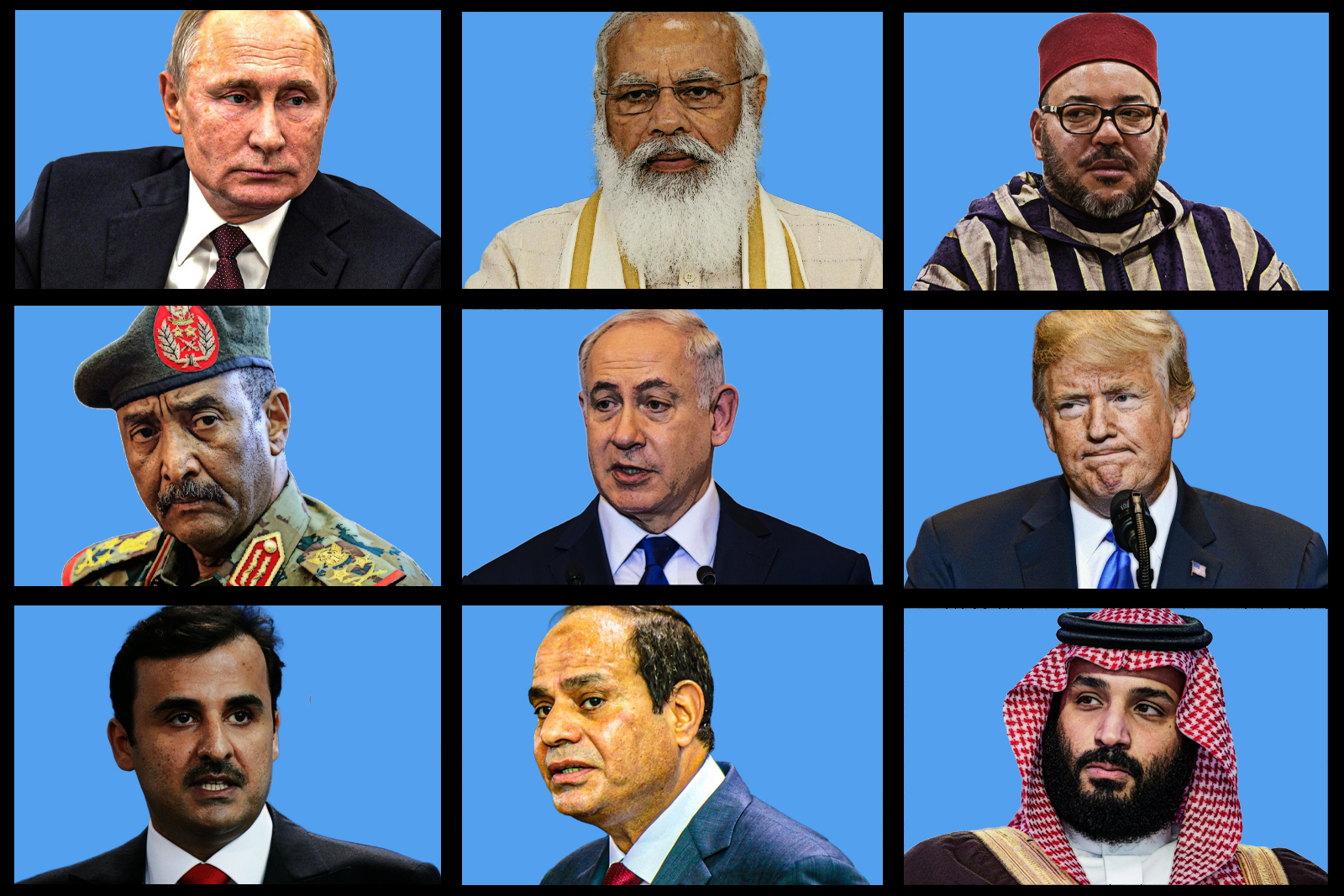
Israel’s Deepening Ties with Controversial Allies
Amid the thrill of the World Cup returning, many controversies are circling around its host country Qatar. Some of my friends in the LGBTQ+ community lamented about how they would be unable to see the games in person since Qatar criminalizes homosexuality. This didn’t entirely surprise me, as I would feel unsafe flying to many countries as a Jew. Yet, as a result of recent normalization efforts, Israel was able to send soccer fans safely to Qatar. What does it say about Israel that it partners with these blatant human rights abusers?
While Qatar may be the most relevant example today, it is not the only country with which Israel has established diplomatic ties that contradict its human rights assertions. Israel is straddling a delicate line in the international atmosphere of globalization, dependency, and crisis. Israel must be wary not to lose its character while trying to navigate as a country with strategic allies.
It is no secret that Jews and Israelis have been subjected to exclusionary treatment in the Middle East. In recent years, Israel has made agreements with some of these countries to normalize relations. Some may argue that Israel should ally with anyone willing – that out of desperation for survival and less violence, it is justified to normalize relations with whoever it needs to. The benefits from these normalization efforts have been immense and very present in Israel.
Spanning back to Israel’s original peace accords with Egypt and Jordan, the main incentive and advantage was a relative peace after decades of warring and terror attacks, and they were largely successful. This reassurance strengthened economic and military ties between Israel and its neighbors. Over 20 years later, Israel signed another set of peace agreements, which snowballed into varying levels of normalization with several Arab nations, bringing about a fresh wave of benefits, perhaps most notably uniting these countries against the common threat of Iran.
Nevertheless, the immoral practices presented by these countries may outweigh the benefits of these relationships. Some argue that Israel’s character is damaged if it sells out its morals. Especially as a country for those who have been existentially persecuted on countless occasions, Israel should not stand by and allow humanitarian atrocities to occur in countries that they have ties with. Some saw Israel’s peace with Egypt and Jordan as selling out Israel’s values to shake hands with the leaders of countries who brought them so much harm. Although the recent countries Israel has established relations with have not been as directly involved in attacking Israel, they betray its values in other ways.
For example, Sudan, another country that established diplomatic relations with Israel, perpetrates severe violence against civilians and mistreats prisoners. Morocco is another country that established diplomatic ties with Israel in 2020, yet they massively restrict civil liberties. For Israel to align with these governments yet be passive to these atrocities is irresponsible for any country, but specifically feels unpleasant coming from Israel, whose citizens have historically endured such horrors with little intervention. Does Israel hold a higher moral responsibility to help others based on traditional Jewish values and historic offenses committed against them?
The current debate around Qatar is yet another test of how far Israel is willing to go to secure allies in the Middle East. While Israel does not have official diplomatic ties with Qatar, the governments worked closely together to allow entry visas for Israeli citizens and the accompanying bureaucratic processes. The Qatari government has also repeatedly tried to assert its influence over Gaza, having been known to support Hamas, the ruling terror organization, whose stated goal is to destroy Israel.
More broadly, homosexuality in Qatar is punishable by imprisonment, women are not granted societal liberties, and many journalists and activists are imprisoned and tortured. World Cup preparation alone brought about an alarming increase in worker deaths and other abuses relating to the stadiums’ construction. Despite not having official diplomatic ties, Israel puts itself in a problematic situation by working with the Qatari government. Moreover, Qatar and Israel established trade relations in the 1990s, proving unstable as the trade office was closed in 2000 largely due to Qatar’s disapproval of Israeli activity in Gaza. Qatar also remains involved in talks regarding the peace process because of its interest in the Palestinian-controlled areas. Qatar seemingly checks all the boxes that would make a country a red flag for Israel, yet they are opening a temporary office in Doha to aid their tourists.
Ultimately, Israel today does not seem as existentially threatened as it has historically been. Israel has an extremely adept military with extraordinary defensive capabilities, receives steady financial support from the United States, and many of its neighbors have turned towards making peace rather than further attacks. This newfound stability is largely due to its normalized relations with Arab countries, despite their own shortcomings in maintaining societal welfare. While recognizing that Israel’s international position is still dubious, it may now have enough stability to reevaluate how to proceed with making allies in the future. Regardless, Israel should remain wary of who they are establishing connections with and at what cost so as to not lose their character in an everchanging, globalized world.
